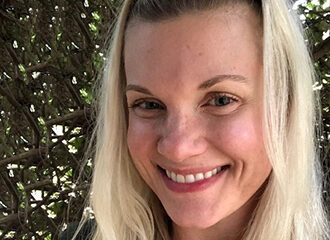Written by: Ava Pollack, MA, LCMHC, Team Leader and Alumni Representative at The Renfrew Center of Charlotte

If you haven’t already, check out our previous article on 4 Tips for a Smooth Post-Treatment Recovery.
Where Can I Find Support?
Eating disorders are complex, and providers who have training and experience in this niche community are better equipped to help navigate the difficulties of transitioning out of treatment.
It is important to work with a team that meshes well with your personality, establishes a safe therapeutic environment, and can support you in meeting your specific goals. Maintaining open communication with your team and verbalizing what is and what is not helpful for you can help determine goodness of fit.
Support groups may be useful to individuals transitioning out of higher level of care, especially for those who benefit from connecting with others and sharing similar experiences. The Renfrew Center offers weekly outpatient group support, and the National Eating Disorders Association (NEDA) has resources on both virtual and in-person support groups. This can serve as a supplement to your outpatient team but is not recommended as a replacement.
How Should I Feel When I Leave Treatment?
Simply put, there is no “should” in this case.
While a higher level of care is sometimes needed to make progress toward resolving eating disorder behaviors, related unhelpful tendencies and underlying issues, patients often find that treatment is not a “fix.” As most of the treated issues have been ingrained or deep-rooted, learning new behaviors and unlearning beliefs can sometimes take longer than higher levels of care allow.
Treatment provides a unique environment in which the foundation for recovery can be laid; life beyond treatment is where you can build upon that foundation and live a life that aligns with your values.
The expectation upon leaving treatment is not necessarily to be free of all eating disorder thoughts, urges and even behaviors in some cases. Of course, that is the hope, but the purpose of treatment is to provide space to learn that you can do the hard things that once felt unimaginable with the addition of consistent support. Some people may experience complete freedom from their eating disorder, and some may continue to struggle. Neither scenario is the standard, and recovery shows up in different forms. Recovery is not linear—struggling is a part of the process.
How Should I Prioritize Recovery After Treatment? 6 Tips
Returning to your old schedule (work, school, family responsibilities, etc.) after treatment can be difficult. You may associate this routine with your eating disorder… and that’s okay! Here are some tips to strengthen your recovery journey:
-
- Take your recovery one day at a time. A lapse (the single use of an eating disorder behavior) does not necessarily need to lead to a relapse (deteriorating back to the eating disorder). Focus on what you need and try to approach yourself with compassion and curiosity. Lending yourself forgiveness does not equate to allowing yourself permission to continue the behaviors. Connecting to yourself and others decreases your chance of falling into a spiral.
-
- Refrain from comparison. Try not to compare your recovery experiences to others—your pre-treatment lives most likely looked very different, and so will your post-treatment lives.
-
- Embrace change. Recognize which environments do not serve you or contributed to the development of your eating disorder. Make necessary adjustments, if possible, to better suit your life in recovery.
-
- Set appropriate boundaries. Boundaries may be necessary in many different scenarios (i.e., diet-focused discussions). Sometimes boundaries need to be repeatedly established before they stick.
-
- Take care of yourself. If you know someone who struggles with an eating disorder, recognize that you are not equipped to support them by yourself. Defer to professionals, as attempting to individually help the other person will likely result in harm for both of you. The most supportive action you can take is recommending professional treatment.
-
- Avoid diet culture. Be mindful of the social media accounts you follow and the advice you take from others who are not trained in eating disorders. Before taking food-related advice, even from a healthcare provider, consult with your eating disorder treatment team.
Conclusion
Eating disorder recovery is unique to each individual who experiences it—there is no standard protocol for what life looks like after treatment. Ensuring you have appropriate support from professionals (clinicians, dietitians, doctors, etc.) as well as family and close friends, is crucial to navigating challenges that arise in recovery. Last but not least, you must learn to prioritize yourself, your health, your feelings, and your recovery along your journey.


